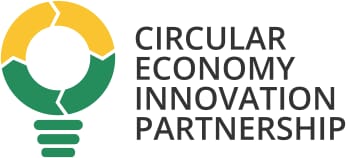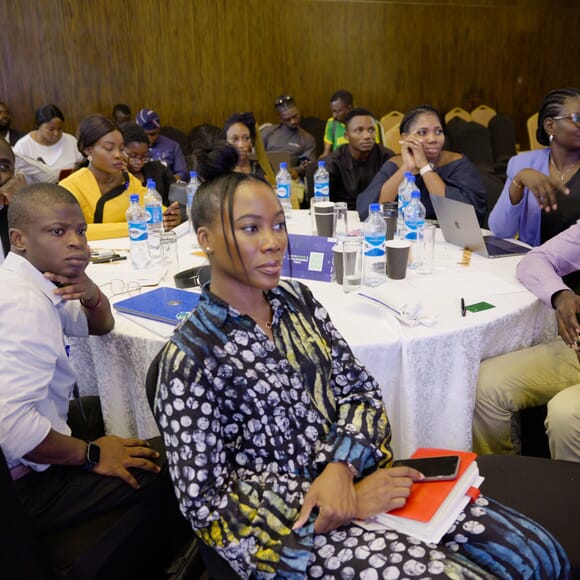Circular Economy Strategy Week
Background
The Circular Economy Strategy Week was organised following the Circular Economy Roadmap session held on February 20, 2024, to offer solutions and policy strategies to tackle issues in the Circular Economy hindering the effectiveness of the system. The purpose of the Circular Economy Strategy Week was to continue building upon the work carried out within Lagos State and Nigeria to accelerate the Circular Economy agenda through strategic coordination and identify areas where Dutch-Nigerian partnerships can create the most value in building and scaling circular business models in Nigeria. The event was organised by the Circular Business Platform and the Netherlands Government, led by the Netherlands Enterprise Agency.
The Challenge:
Nigeria has a Circular Economy Roadmap plan which identifies seven sectors—agriculture, waste, energy, construction, water, mining & quarrying, and industry—as key propellers to circularity in the economy. However, the Nigerian Circular Economy Roadmap lacks a clear, identifiable action plan to achieve the goals contained in the Roadmap. Without clear-cut goals, the Roadmap would remain dormant. The Circular Economy Strategy Week event sought to address this by providing circular strategies to facilitate the creation and improvement of circular businesses, initiatives, regulations, policies, enterprises, and markets in four selected sectors: Agriculture, E-waste, Waste Management, and Waste to Energy.
Programme Facilitation
Lagos, Nigeria
Solution
-
Strategy Ideation:
To develop profound circular strategies to propel and improve circular business in Nigeria, the Circular Economy Strategy Week lasted for four days (March 25-28). The CESW featured a three-day breakout session on the Agriculture, E-waste, Waste Management, and Waste to Energy sectors consecutively. The breakout sessions on these four sectors generated circular strategies to drive circular business actions and improvement, bearing in mind the peculiar strengths, threats, weaknesses, and opportunities in each sector. The e-waste and agriculture teams had a field trip to Eterra Technologies in Abule-Ado and to the Agrofood Nigeria Trade Show event at Landmark respectively for participants to witness real-time situations in the sectors. -
Visibility, Patronage, and Collaboration for Circular Business:
The CESW featured a tour of the Nigerian Circular Business Models, creating visibility and possible patronage and collaboration opportunities for more than ten circular businesses present during the event. Circular businesses had the opportunity to interact, exhibit, and network with potential customers at the event. -
Circular Knowledge, Learning and Impact:
To enhance participation, credibility, exchange of circular ideas, quality learning, and robust impact, representatives of the Netherlands Enterprise Agency and international circular firms, including Closing the Loop and CIRCO, made presentations geared towards fostering an enhanced circular economy in Nigeria through collaboration with the Dutch government and circular companies. -
Practical Solution for Circular Lagos:
A community mural activity took place during the event where guests were grouped and tasked to express their circular aspirations for Lagos State on canvas. The goal of this activity was for guests to collaboratively create and share pragmatic circular solutions to transform Lagos State into a more circular state. -
Strengthening Affinity in the Industry:
Among other industries in the Circular Economy, the fashion and plastic industries are at the forefront of driving circular solutions in Nigeria. To strengthen the existing circular affinity, a networking dinner was held for both industries. These were the Circular Textile and Fashion Networking Session for the fashion industry and Building an Innovation Ecosystem for Plastics.
Results
Strategic Documents
Each of the sectors (agriculture, E-waste, Waste Management, and Waste to Energy) identified now has a document enumerating possible solutions to guide future actions and implementations necessary for enhanced circular business in their respective industries.
Ongoing Conversations and Implementations
The CESW event is driving future conversations and implementations for the Nigerian Circular Economy. For instance, the CBP team participated and partnered in delivering at the EkoWaste Summit 2024 event.
In Their Own Words:
Conclusion
The Circular Economy Strategy Week successfully produced circular strategies by different stakeholders in the industry to serve as a compass towards establishing a flourishing Circular Economy for Lagos and ultimately Nigeria. Weeks after taking place, the event continues to influence conversations, ideas, collaboration, networking, and partnerships needed to contribute to the adoption and practice of circularity in the Nigerian economy. The Dutch government and the Circular Business Platform, who are the conveners of the event, remain resolute towards achieving the objectives of the event.









